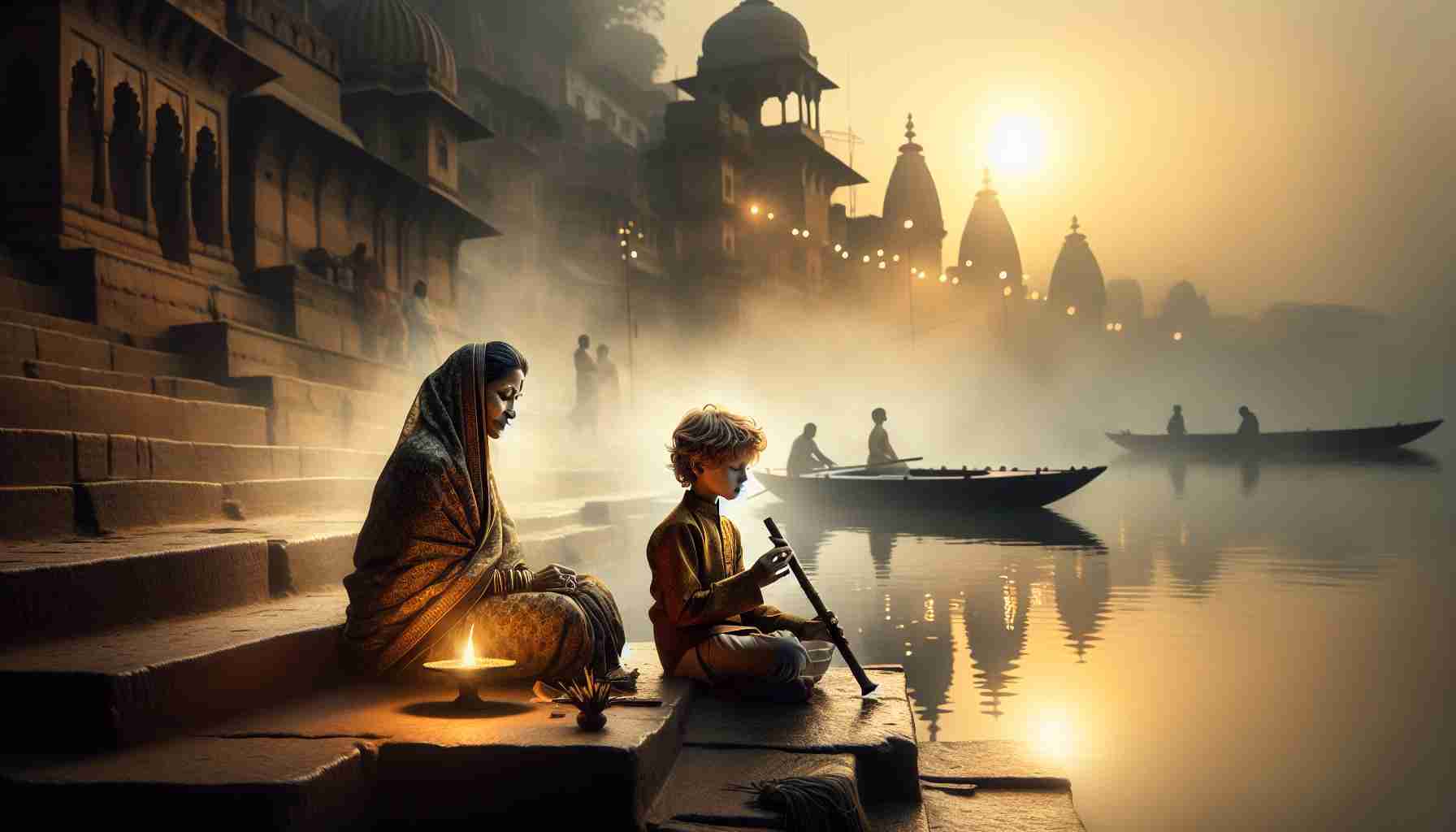

I am Sita, a schoolteacher in Varanasi, and this is the story of the morning my faith nearly slipped away.
It began two winters ago. My husband fell sick in early December — a quiet illness at first, a little fatigue, a cough. But within weeks, it swelled into something that stole his breath and tightened his chest. Tuberculosis, the doctor said. Treatable, but slow. Still, I lit a diya — a small oil lamp — every morning before the murti of Lord Shiva, the deity who watches over transformation and destruction. I whispered prayers as I used to watch my grandmother do. But unlike hers, mine came with doubt.
When the medicine stopped working, my faith began to fray. I remember crying in the corner of our small kitchen, pressing my forehead to the cool tile. I asked the Divine, Where are You now? Am I talking to the sky?
Every morning still looked faithful — I said my mantras, like Om Namah Shivaya, with my lips, but my heart had gone silent.
In the Bhagavad Gita, Krishna says, “Cast all your duties upon Me, and take refuge in Me alone. I will free you from all sins; do not grieve” (Gita 18:66). I had read that verse in school once. But now, I wondered how to hand over anything when every thought was full of fear.
Then came the morning that changed me.
I was returning from the pharmacy, pushing through fog and honking scooters, my bag full of pills we could barely afford. Near the Tulsi Ghat, I saw a boy — maybe eight or nine — sitting on the steps, holding a broken flute. His clothes were tattered, but his eyes were calm, singing softly to the Ganga flowing beside him. I paused.
“The river takes everything,” he said, noticing me. “She never says no.”
I don't remember why I asked this, but I said, “What if you have nothing to offer?”
He tapped his hand against his chest. “You can give your inside.”
Something in me cracked. I stood there, shoulders trembling, as the wind lifted the fog from the river. I thought of the Isha Upanishad, which begins, “All this — whatever moves in this moving world — is clothed by the Lord” (Isha Upanishad 1). Maybe I didn’t have to fight to hold it all together. Maybe I could let go.
That evening, while sitting at my husband’s bedside, I didn’t pray for cure. I prayed for peace — in him, in me, in this storm.
In the Ramayana, Rama endures exile, betrayal, and war, yet never lets go of dharma — his path. Faith, I realized, isn’t loud certainty. It's quiet surrender.
Now, when fear comes, I light my diya and say my prayers — not to fix anything, but to remember I’m not holding this life alone. Like the Ganga, the Divine flows steady, even when I cannot see the path beneath the clouds.
And that knowing… it anchors me.
I am Sita, a schoolteacher in Varanasi, and this is the story of the morning my faith nearly slipped away.
It began two winters ago. My husband fell sick in early December — a quiet illness at first, a little fatigue, a cough. But within weeks, it swelled into something that stole his breath and tightened his chest. Tuberculosis, the doctor said. Treatable, but slow. Still, I lit a diya — a small oil lamp — every morning before the murti of Lord Shiva, the deity who watches over transformation and destruction. I whispered prayers as I used to watch my grandmother do. But unlike hers, mine came with doubt.
When the medicine stopped working, my faith began to fray. I remember crying in the corner of our small kitchen, pressing my forehead to the cool tile. I asked the Divine, Where are You now? Am I talking to the sky?
Every morning still looked faithful — I said my mantras, like Om Namah Shivaya, with my lips, but my heart had gone silent.
In the Bhagavad Gita, Krishna says, “Cast all your duties upon Me, and take refuge in Me alone. I will free you from all sins; do not grieve” (Gita 18:66). I had read that verse in school once. But now, I wondered how to hand over anything when every thought was full of fear.
Then came the morning that changed me.
I was returning from the pharmacy, pushing through fog and honking scooters, my bag full of pills we could barely afford. Near the Tulsi Ghat, I saw a boy — maybe eight or nine — sitting on the steps, holding a broken flute. His clothes were tattered, but his eyes were calm, singing softly to the Ganga flowing beside him. I paused.
“The river takes everything,” he said, noticing me. “She never says no.”
I don't remember why I asked this, but I said, “What if you have nothing to offer?”
He tapped his hand against his chest. “You can give your inside.”
Something in me cracked. I stood there, shoulders trembling, as the wind lifted the fog from the river. I thought of the Isha Upanishad, which begins, “All this — whatever moves in this moving world — is clothed by the Lord” (Isha Upanishad 1). Maybe I didn’t have to fight to hold it all together. Maybe I could let go.
That evening, while sitting at my husband’s bedside, I didn’t pray for cure. I prayed for peace — in him, in me, in this storm.
In the Ramayana, Rama endures exile, betrayal, and war, yet never lets go of dharma — his path. Faith, I realized, isn’t loud certainty. It's quiet surrender.
Now, when fear comes, I light my diya and say my prayers — not to fix anything, but to remember I’m not holding this life alone. Like the Ganga, the Divine flows steady, even when I cannot see the path beneath the clouds.
And that knowing… it anchors me.